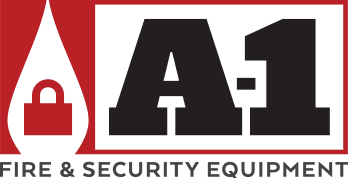Business fire alarm systems are a vital part of any commercial building. It allows for the safety and protection of customers, employees, and property in case a fire breaks out or other emergencies threaten them. There are various types of business fire alarm systems available on the market today, like conventional fire alarms, addressable alarms, and analog fire alarms, but they all have a single thing in common: they require someone who knows what they are doing to install them correctly.
Business fire alarm systems are made for two main purposes: identifying and controlling fires and protecting people. Some key components that make up a commercial fire alarm system are smoke detectors, heat sensors, extinguishing equipment or sprinklers, manual call points, voice evacuation systems, or water flow alarms (where applicable).
What Is The Importance Of Business Fire Alarm Systems?
It's always a great idea to get a compliant fire alarm system, regardless of how large or small your company is. A fire could cause severe damage, and overcoming the considerable losses might be difficult.

It's vital to have security and safety measures in place to stop such events from occurring. Below are all the reasons why getting business fire alarm systems is for your company:
Early Detection
The ability of business fire alarm systems to detect dangers early is the most important feature they have to provide. Early detection of hazards, such as fires, might significantly influence the outcome. It could help you avoid significant property damage; therefore, it is critical. An early signal allows you to protect the property and move its occupants to safety. A monitored fire alarm also delivers an alert to the fire department so the flames might be contained as soon as possible.
Quick Response Time
Business fire alarm systems ensure that a solution is provided quickly and the whole environment is kept safe. This includes both property and life protection. The fire department might be reached as soon as possible, and firefighters could be sent to your business as soon as the system detects a fire with fire alarm monitoring.
Avoid Inhaling Smoke
Smoke inhalation is among the most common cause of death in fires. Smoke inhalation could occur when individuals are unable to detect that there's a fire and flee in time. In situations like this, getting business fire alarm systems is essential.

Practicality
Business fire alarm systems might be pricey initially, but when you consider the advantages they provide, it is easy to see why an effective one might save you money. In case of a fire, efficient business fire alarm systems can help with response time while also safeguarding your important assets against fire. A properly maintained fire alarm security system could also help save you money on insurance premiums by lowering the insurance rate.
What are the Types of Business Fire Alarm Systems
There are various types of systems; nevertheless, all business fire alarm systems operate on the same principle. When a detector senses heat or smoke or a person pushes a manual call point button, the alarm sirens alert others in the building about a potential fire and to evacuate. Property protection also requires remote signaling equipment to alert the fire service through a central station.
Conventional Business Fire Alarm Systems
In conventional business fire alarm systems, many call points or many call points and detectors are attached to the fire alarm control panel in zones. A zone is a circuit typically connected to a fire compartment or one floor at a time. The fire alarm control panel will feature many zonal LEDs. The option of getting zones allows for an estimate as to where a fire has happened. The accuracy of understanding where a fire began is defined by the number of zones on the control panel, and as such, the number of circuits connected within the structure.
The control panel would be connected to two sounder circuits, including electronic sounders, bells, or other audible gadgets.
Addressable Systems
The detection technique of an addressable system could be compared to that of a conventional system, except that the control panel knows which call point or detector triggered the alarm.

The detection circuit is a loop; up to 99 devices could be linked to each loop. The detectors are conventional ones with an address built in, although there are a few slight modifications. The switches regulate the addresses in every detector, shown on the control panel, once that particular detector is activated. Additional field devices might be purchased that only connect to the loop for detection purposes, like a sprinkler flow switch that closes once water from a sprinkler hits it.
Like a conventional system, a sounder system consists of a minimum of two sounder circuits. For the detection loop/s to be sectioned, loop isolation modules are available to guarantee that a short circuit or one fault would only lead to the loss of a minor part of your system.
Analogue Fire Alarm Systems
Analogue fire alarm systems are oftentimes referred to as intelligent business fire alarm systems. Various kinds of analog systems are available based on the type of communication protocol they employ. Most analog detectors on the market could be smarter because their outputs represent the value of detected circumstances only.
It's up to the control unit to identify whether there's a fire, a fault, or a pre-alarm. Each detector has a computer that checks the surrounding environment and interacts with the control panel if there is a fire, a fault, or the detector head requires cleaning.
Essentially, analog systems are much more complex and offer many more features than conventional or addressable systems. Their primary goal is to minimize false alarms.
Components Of Business Fire Alarm Systems
Business fire alarm systems are composed of the fire alarms themselves, all the components that do the alarm work, those that feed into your alarm, and those that are set off by the alarm (evacuation systems, fire sprinklers, emergency lights, etc.).
Alarm Initiating Devices
All fire alarm systems need the ability to detect that an emergency fire event is taking place. This detection could be in the form of a smoke detector, CO2 detector, heat detector, or other sensor-triggered components. It could also be in the form of a lever or pull system to be used when a person spots a fire and can trigger the alarm system. Most fire alarm systems have a combination of these detectors spaced strategically throughout the building.
Fire Alarm Notification Devices
Once a fire alarm receives an alert, it must convey the emergency. Fire alarm notification devices include flashing lights, horns, and chimes.
Fire Alarm Control Panel
This is the system's brain and generally manages data from all the different devices throughout the building. This is also where users can view information, as well as see if there is any maintenance or errors that need to be handled. The fire alarm control panel is the source of troubleshooting codes communicating issues when the system requires attention. Some fire alarm control panels have replaceable circuit cards.

Backup Power Supply
Fire alarms need to work at all times, including during power outages. A backup power supply is necessary to protect the building and gives the system an alternate power source in case the usual source is unavailable. Backup power supplies usually consist of 6v or 12v batteries linked to the control panel. The control panel will charge and monitor them when needed to ensure their availability.
Remote Control and Display Panel
If a building is very large, checking the different control panels can be time-consuming. A remote annunciator can allow users to check, activate, and deactivate all fire alarms throughout a building when necessary. Remote annunciator devices like this are usually only seen in smaller buildings where required by code.
Building Safety Interface
Some business fire alarm systems are also built to interact with the entire building in the event of a fire. This component can interact with the building directly. In an emergency, the fire alarm can hold doors open so people can escape, close doors to keep smoke from harming people, control elevators, and more.
A fire alarm system isn't just one piece of equipment. It is a series of components that work together to make your building safer and limit damage from fire and smoke.
What Fire Alarm System Type Does My Business Need?
Whatever type or combination of business fire alarm systems you need or have in your building, when a life-threatening issue like a fire is detected, your system must simultaneously warn occupants to evacuate, transmit information to the monitoring company, send emergency responders, and trigger fire sprinklers or other extinguishing systems. This whole process should happen in mere seconds.
The only way to truly determine the best commercial fire alarm system is to partner with a seasoned company such as A-1 Fire & Security Equipment that has been designing, repairing, inspecting, and maintaining fire protection systems for years. We consistently work to be among the top commercial fire alarm companies for customer service, safety, availability, and reliability. Reach out to us today!
